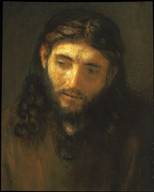
After taking their programme on tour to Turkey during the summer, the London Schools’ Symphony Orchestra were able to play some most taxing works with absolute confidence at their concert in The Barbican Centre last Tuesday. Under their dynamic conductor Peter Ash, whose infectious enjoyment of music-making gets the best out of these young players, the orchestra set the hall fizzing with their spirited performance of Glinka’s overture ‘Russlan and Ludmilla’. The acoustics of the hall tend to accentuate the brass at the expense of the strings, and this was rather evident with such an enthusiastic brass section, but the cellos had their moment of glory as their joyful second-subject melody rang out.
Continuing the Russian theme the main work of the first half was Rachmaninov’s Third Piano Concerto, with the soloist Aleksander Madzar. He played with the cool aplomb of Rachmaninov himself, with absolute clarity in the fast quiet passagework, and powerful bravura when needed. The orchestral sound, particular the muted strings, was mature with some lovely woodwind and horn solos punctuating the work. Peter Ash had to work hard at times to move the orchestra along with the soloist, but the ensemble never fell apart. It is hard for the players at the back of the orchestra to hear the piano in a concerto, but they were watching intently and playing with great dedication. The final peroration of the work brought enthusiastic cheers from the audience.
Although only two years separates the Rachmaninov from the final work – Stravinky’s ‘Petrouchka’ - they inhabit completely different sound worlds. The orchestra jumped the hurdles of the ever-changing time-signatures without fear. Only the impossibly high opening in the cellos showed that this was a dangerous ‘high-wire’ act at the circus. Solos from the flute and trumpet deserve special mention for their professionalism. The young players of the LSSO obviously enjoy this music, and portrayed all the fun of the fair with energy and attention to detail, and were ready to give an encore. For those groups of school children in the concert hall, perhaps for the first time, this was an inspiring occasion that will hopefully encourage some of them to consider the joys of classical music.
Continuing the Russian theme the main work of the first half was Rachmaninov’s Third Piano Concerto, with the soloist Aleksander Madzar. He played with the cool aplomb of Rachmaninov himself, with absolute clarity in the fast quiet passagework, and powerful bravura when needed. The orchestral sound, particular the muted strings, was mature with some lovely woodwind and horn solos punctuating the work. Peter Ash had to work hard at times to move the orchestra along with the soloist, but the ensemble never fell apart. It is hard for the players at the back of the orchestra to hear the piano in a concerto, but they were watching intently and playing with great dedication. The final peroration of the work brought enthusiastic cheers from the audience.
Although only two years separates the Rachmaninov from the final work – Stravinky’s ‘Petrouchka’ - they inhabit completely different sound worlds. The orchestra jumped the hurdles of the ever-changing time-signatures without fear. Only the impossibly high opening in the cellos showed that this was a dangerous ‘high-wire’ act at the circus. Solos from the flute and trumpet deserve special mention for their professionalism. The young players of the LSSO obviously enjoy this music, and portrayed all the fun of the fair with energy and attention to detail, and were ready to give an encore. For those groups of school children in the concert hall, perhaps for the first time, this was an inspiring occasion that will hopefully encourage some of them to consider the joys of classical music.




